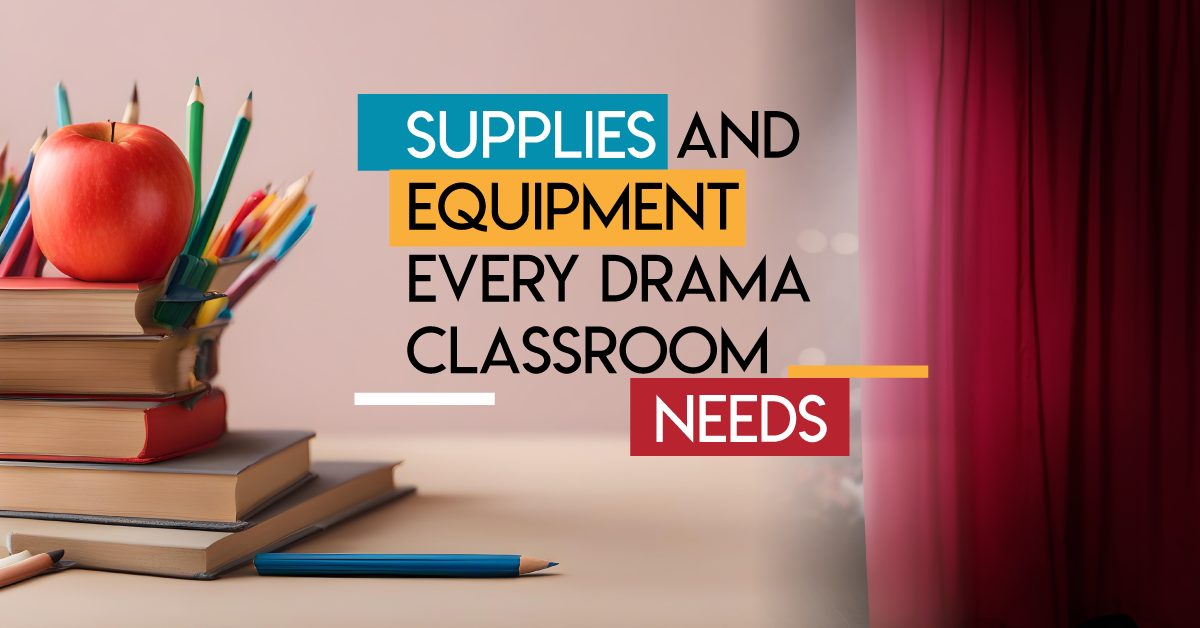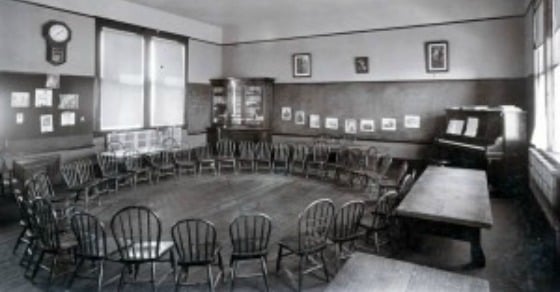Top 10 Classroom Management tips for Drama Teachers
Welcome guest blogger, Matt Webster! Matt is a theatre teacher, a playwright and a Drama Teacher Academy Course Instructor.
Hello teachers! To help you with your final preparations for the coming school year, Theatrefolk has asked me to put together a “Top Ten” list of management tips you can use in the theatre classroom. These tips are specifically designed to help you lay a solid foundation for discipline in the coming year. So whether you are beginning teacher facing a classroom full of students for the first time, or a grizzled theatre veteran (with the creative battle scars to prove it!), here are my top ten classroom management tips!
10. Utilize your space to its maximum potential
Whether you are working in a classroom, a theatre or a gymnasium, you need to prep your space to define workspaces and reduce distractions. Make sure you eliminate places where students can hide, and have designated class, work and performance spaces. This will help keep your students on task.
9. Be prepared
There is no worse feeling than facing a room full of students and being unprepared. If this is your first time teaching, take some time NOW to string together your first week or two of lesson plans and put together an emergency list of last-second games or activities just in case you need them (See the end of the post for a PDF of emergency activities). If you are a seasoned teacher, go over your unit plans and look for those lessons that didn’t quite go as planned. Now would be the time to tweak them!
8. Be honest
Even though you are in charge, you don’t have to be an insensitive dictator. Don’t be afraid to share your hopes, dreams and expectations with your students. Knowing your vision for this class will go a long way to your students helping you achieve that vision.
7. Clearly communicate expectations
Whether you print them in your syllabus, write them on the board, or post them on a poster, make sure your students are aware of your expectations in the classroom. This goes for performance and academic expectations, as well as discipline.
6. Be aware of school and district rules and boundaries
Make sure you know what can and can’t be done in your classroom. That includes what you can do on stage! If there is any question about an activity or a script, run it by an administrator first. You knowing the rules helps your students know the rules.
5. Get student feedback on rules
Allow your students to provide feedback on classroom rules and expectations. When students have ownership of the rules, they feel empowered to encourage their peers to follow those rules.
4. Have consequences
If rules are broken, make sure there are appropriate consequences. This lets students know that you are serious about discipline in your classroom.
3. Get student feedback on consequences
Having students suggest consequences for rule breaking not only makes them more fair (after all, THEY suggested them), but often times makes them tougher.
2. Follow through on consequences
If rules are broken or expectations are not met, the failures must be acknowledged and the consequences must be imposed. If you don’t follow through, you tell your students that you don’t mean what you say.
1. Be consistent
This is the number 1 management tip. Hold ALL students to your standards of work, performance and integrity, no matter if they are the class darling or class clown, and those students will respect your class. Consistency is the mark of a successful teacher.
I hope this list helps you set the tone in your classroom for the coming year. Until next time: Happy teaching and break a leg!
Check out Matt’s DTA course Organized Chaos: Discipline in the Theatre Classroom for a more in-depth guide to classroom management.



